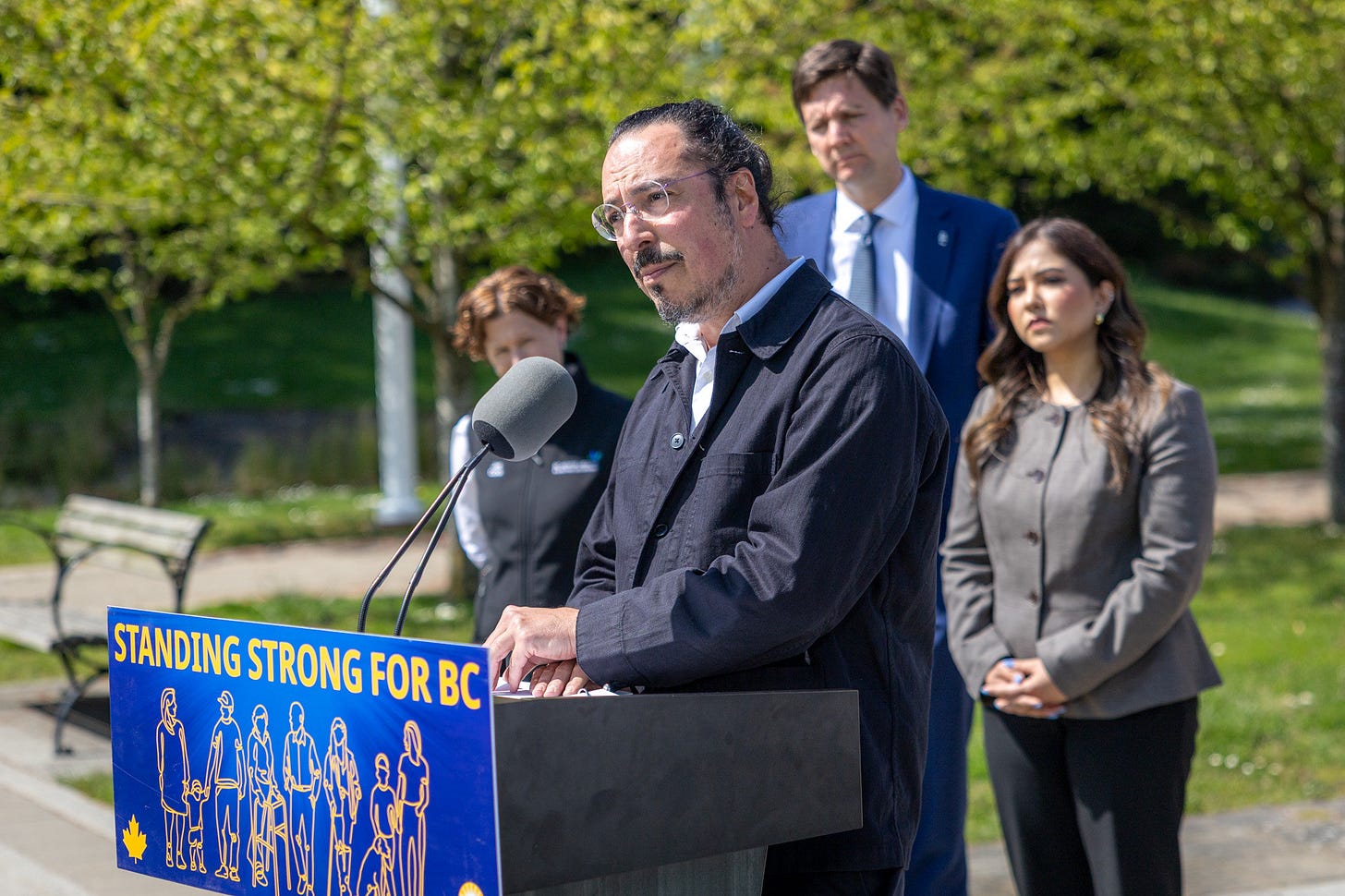'For the love of god or anything right get me off this unit'
When appropriating confinement units was an issue the government denied

“I have done nothing wrong. This is no joke. This is me on my last fucking nerve. Plz for the love of god or anything right get me off this unit or transfer me plz have a fucken heart. I don’t deserve this.”
That was the second complaint, filed April 22, 2017 by an inmate who was put in separate confinement at the Okanagan Correctional Centre.
A day later, the inmate filed another complaint.
“I’m writing you this in hope you can help me. I have been asking for help for the last 12 days,” it begins, with a large section in the middle redacted.
“I can’t take this shit at all anymore. I’m going to fucking lose my shit. I’m seriously going to have a mental breakdown. The only way it’s going to stop is to put me on [redacted] unit or [redacted]. This is no joke, I’m telling you the truth. Plz help me.”


Separate confinement has a few different names. Sometimes it is referred to as segregation — but it is most commonly known as solitary confinement.
The Corrections Act Regulation provides a handful of instances in which confinement can be used. Sections 17-19 concern safety issues, allowing short-term confinement of up to 72 hours on grounds that a person is in danger or is endangering others; long-term confinement of up to 15 days, with the allowances for an indefinite number of extensions; or voluntary confinement.
And sections 24 and 27 of the regulation allow segregation pending disciplinary hearing or as discipline following a hearing.
For the inmate confined in April 2017, the authorities gave a peculiar reason.
“As we only have 1 PC unit, you must remain separately confined,” the supervisor wrote in remarks also dated April 22 that year attached to the inmate’s second complaint, referring to the protective custody unit.
This is then reiterated a day later in response to the third complaint: “As you have been told before, there is no other placement option for you for the time being. You will be informed as soon as another option becomes available.”
As I worked on a series about the jail, which was published in April 2018, Prisoners Legal Services told me that OCC had been using segregation units — or similar mental health observation units — as overflow for the single protective custody unit.
Data obtained through a freedom-of-information request showed the use of segregation at OCC had been increasing over time, from approximately 11% of the jail’s population in May 2017 to 12.5% in December that year, and then again to around 14% in January 2018.
PLS said it had received three separate complaints about inmates being separately confined because of space issues, but when I reached out to BC Corrections, the government outright denied it.
“There is currently — and always has been — enough space to house inmates classified to protective custody at OCC,” the agency told me in an emailed statement.
“It should be noted that there are some cases where an inmate could be at risk even in the protective custody population. In these cases, inmates may choose to be separately confined from the inmate population on a voluntary basis, or they may be transferred to another centre.”
The April 2017 complaints, which proved that statement false, obtained through a freedom-of-information request which had been long delayed due to a dispute over fees, would only arrive in August 2019, more than a year after I’d stopped working in Penticton.
Fast forward another seven years, and the provincial government would not only not deny appropriating confinement units — it would openly talk about it in a press release.
This time, it would be under the guise of “treatment.”
The province announced last month that it was working to renovate spaces in the Surrey Pretrial Services Centre to accommodate involuntary treatment for inmates at the jail. But in the meantime, it would reserve 10 spaces in the segregation unit to house those forced into treatment.
The government’s apparent comfort in making that announcement may be the result of years of tough-on-crime narratives desensitizing people to the idea of forgoing people’s rights and denying the evidence that involuntary treatment is not particularly productive, and that it can, in fact, be damaging in a number of ways.
After all, it’s been years since the BC Supreme Court had ruled that indefinite segregation in federal prisons was unconstitutional — a decision that had only just come out in 2018.
Still, not everyone is comfortable with the announcement.
“Nobody thinks it’s a good idea,” Dave Webb, a board member with the Surrey Union of Drug Users, told Filter.
“How is putting somebody in segregation good for somebody who’s already mentally unstable?” he asked. “In segregation, you’re going to be there with your own thoughts. And that’s probably the worst thing that you can have at that period of time.”
This would seem to be borne out by the complaints lodged against the Okanagan Correctional Centre in 2017, with the complainant making comments like “have a fucken heart I don’t deserve this,” and “I can’t take this shit at all anymore. I’m going to fucking lose my shit. I’m seriously going to have a mental breakdown.”


